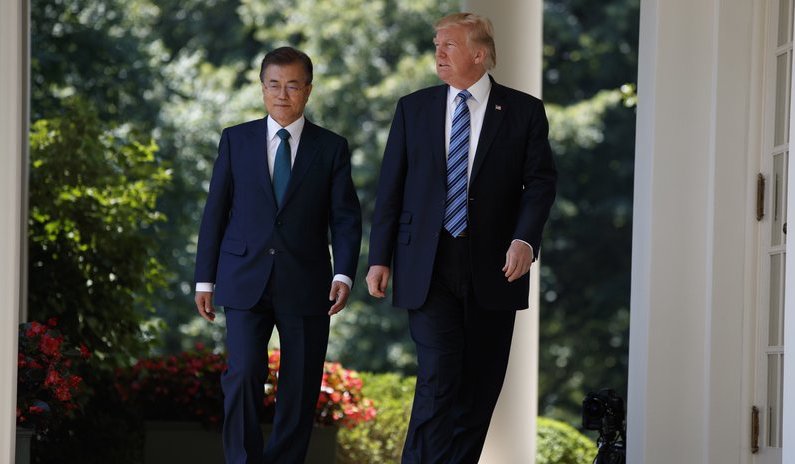Washington. The Coalition for a Prosperous America (CPA) today said the renegotiated Korea-US Free Trade Agreement (KORUS) is a substantial improvement over the original deal. The revised agreement can help reduce large, persistent trade deficits within important sectors such as the automotive industry supply chain.
Dan DiMicco, Chairman of the CPA, said, “President Trump continues to follow through on his campaign pledge to fix failed trade agreements that have hurt US manufacturing competitiveness. America’s automakers have faced onerous and restrictive barriers when trying to sell into the South Korean market. Rewriting the agreement should help to address some longstanding problems and increase US manufacturing production and jobs.”
The rewritten KORUS agreement includes measures to boost US auto imports, eliminate oppressive and costly customs procedures, and expand opportunities for US pharmaceutical exports. Auto exports in particular have been a key problem in US-Korea trade. Under the revised agreement, South Korea will allow the US to extend our 25 percent tariff on truck imports until 2041, 20 years longer than the original 2021 cut-off date. South Korea has also agreed to increase, from 25,000 to 50,000, the number of American-made cars allowed entry under existing US safety standards instead of being required to meet Korean standards.
Michael Stumo, CEO of the CPA, said, “For years, the US automotive supply chain faced a number of non-tariff trade barriers that were carefully imposed by the government of South Korea. Whether it was obscure customs requirements, duplicative emissions testing, or burdensome labeling requirements, the net effect was to discourage access to Korea’s consumer market. The administration has wisely addressed these unjustified Korean trade barriers, and has negotiated the extension of a truck tariff that will allow Americans to keep making trucks and earning good wages.”
The revised KORUS preserves the previously established product-specific quota on steel imports into the US, set at 70% of the average of steel shipments in the 2015-2017 period. The quota was agreed to by South Korea after the US imposed the tariffs on national security grounds under Section 232 of the Trade Expansion Act of 1962.
The original KORUS agreement, which went into effect on March 15, 2012, prompted a rapid increase in America’s trade deficit with South Korea. Where the US goods trade deficit with South Korea was only $13.2 billion in 2011, by 2015 it more than doubled to $28.3 billion. Last year, the US racked up a $23 billion trade deficit with South Korea. So far this year the deficit is improving, reaching $9.9 billion after seven months and is on track to come in at $20 billion or less this year.
CPA is encouraged that the administration has persuaded South Korea to accept American-made cars that can automatically meet overseas safety standards and to improve customs verification procedures. Combined with a recognition of US standards for auto parts and a harmonization of emissions testing requirements, the new agreement should help to increase US automotive exports.
The new KORUS also includes provisions stipulating that currencies must be fairly valued and competitive devaluation must be avoided. This makes it the first free trade agreement to include currency provisions. However, it remains unclear how the currency provisions will be enforced.
“These are key steps,” said Stumo. “But there’s still the issue of South Korea’s currency, the won, being at least 20 percent undervalued. This imposes a de facto tariff on US exports to South Korea. We encourage the administration to address the problems of dollar overvaluation by supporting the imposition of a market access charge on capital inflows to gradually push the dollar price down to a competitive level.”
The Coalition for a Prosperous America is the nation’s premier organization working on the intersection of trade, jobs, tax and economic growth. We represent the interests of 4.1 million households through our agricultural, manufacturing and labor members.













